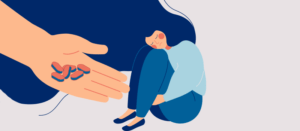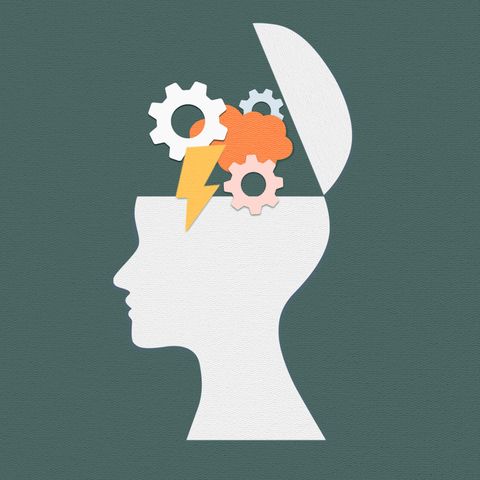If you are struggling with the aftermath of a traumatic event, you may be wondering how to get PTSD treatment. This can be a difficult question to answer, as there is no one-size-fits-all approach to recovery. However, there are certain methods that have proven to be effective for many people. In this blog post, we will discuss some of the most common approaches to PTSD treatment and how they can further help you begin the healing process.
Contents
Defining PTSD
Before we get into the different types of PTSD treatment, it is important to understand what this condition is. PTSD stands for post-traumatic stress disorder. It can develop after a person experiences or witnesses a traumatic event, such as a natural disaster, a car accident, or a personal assault. People with PTSD may experience symptoms such as flashbacks, nightmares, anxiety, and depression. These symptoms can make it difficult to function in everyday life. If you are struggling with any of these symptoms, it is important to seek professional help.
It is important to note that PTSD is not the same as trauma. Not everyone who experiences a traumatic event will develop PTSD. In fact, most people will not develop the condition. However, if you are struggling with symptoms of PTSD, it is important to seek treatment.
PTSD Signs

If you are wondering how to get PTSD treatment, the first step is to recognize the signs and symptoms of PTSD. These can vary from person to person, but some common symptoms include:
- flashbacks
- nightmares
- anxiety
- depression
- isolation
- avoidance of people or places that remind you of the trauma
- difficulty concentrating
- hypervigilance
- trouble sleeping
- irritability
If you are experiencing any of these symptoms, it is important to seek professional help. A trained mental health professional can assess your symptoms and determine if you have PTSD. They can also provide you with the treatment you need to recover.
When To Seek PTSD Treatment?
If you are struggling with the aftermath of a traumatic event, it is important to seek professional help. PTSD can have debilitating impacts, and it is essential to get treatment as soon as possible. If you are unsure whether or not you have PTSD, it is always best to err on the side of caution and seek professional help. A trained mental health professional can assess your symptoms and further provide you with the treatment you need.
If you observe any of the given signs, it is important to consult a professional for treatment:
- Having flashbacks of the event that make it hard to focus on anything else
- Avoiding people or places that remind you of the trauma
- Experiencing panic attacks
- Feeling numb and disconnected from your life and the people around you
- Struggling with intense emotions, such as anger, sadness, or guilt
- Facing difficulty sleeping or concentrating
- Feeling jumpy and on edge all the time
If you are struggling with any of these symptoms, professional help is available. There are many effective treatments for PTSD, and a trained mental health professional can help you find the one that is right for you.
Types of Treatment
There are many different types of treatment available for people with PTSD. Some people find that medication helps to control their symptoms. Others may need to see a therapist regularly to work through their trauma. Some people find that a combination of medication as well as therapy is the most effective approach.
Therapy

Therapy is the process of talking to a trained professional about your experiences and feelings. It can be an effective treatment for PTSD because it allows you to process your trauma in a safe and supportive environment. There are many different types of therapy, so it is important to find one that feels right for you.
- Cognitive-behavioral therapy (CBT) is one of the most common types of therapy used to treat PTSD. This type of therapy helps people change their negative thinking patterns and learn new coping skills.
- Exposure therapy is another type of CBT that can be effective for treating PTSD. This type of therapy involves gradually exposing yourself to the things that trigger your symptoms. For example, if you have a fear of driving, exposure therapy might involve taking short car rides and working up to longer drives.
- EMDR is another type of therapy that stands for eye movement desensitization and reprocessing. This type of therapy can be helpful for people who have trouble processing their trauma. EMDR involves using bilateral stimulation, such as eye movements, to help the brain process information.
- Cognitive processing therapy (CPT) is another type of therapy that can be used to treat PTSD. This type of therapy helps people learn new ways of thinking about their trauma. CPT involves both group and individual sessions.
- Group therapy for PTSD has been found to be effective. This type of therapy allows people to share their experiences with others who have been through similar things. It can be helpful to hear that you are not alone in your experiences.
The most appropriate form of treatment for your conditions will be decided by your respective therapist on the basis of your symptoms as well as preferences.
Medication

There are many different types of medication that can be used to treat PTSD. Some people find that medication helps to control their symptoms. Others may need to see a therapist regularly to work through their trauma. Some people find that a combination of medication and therapy is the most effective approach.
- Selective serotonin reuptake inhibitors (SSRIs) are a type of antidepressant that can be used to treat PTSD. SSRIs help to balance the levels of serotonin in the brain, which can improve mood and also reduce anxiety.
- Serotonin-norepinephrine reuptake inhibitors (SNRIs) are another type of antidepressant that can be used to treat PTSD. SNRIs work by increasing the levels of both serotonin and norepinephrine in the brain. This can help to improve mood and reduce anxiety.
- Monoamine oxidase inhibitors (MAOIs) are a type of antidepressant that is typically used as a last resort for treating PTSD. MAOIs work by inhibiting the activity of monoamine oxidase, which is an enzyme that breaks down neurotransmitters. This can help to increase the levels of certain neurotransmitters, such as serotonin and norepinephrine.
- Tricyclic antidepressants (TCAs) are a type of antidepressant that can be used to treat PTSD. TCAs work by inhibiting the reuptake of certain neurotransmitters, such as norepinephrine and serotonin. This can help to improve mood and reduce anxiety.
- Benzodiazepines are a type of medication that can be used to treat PTSD. They work by reducing anxiety and helping people to feel calm. However, benzodiazepines can be addictive and should only be used for short-term treatment.
- Anti-anxiety medications are a type of medication that can be used to treat PTSD. Anti-anxiety medications work by reducing anxiety and helping people to feel calm. Beta-blockers are a type of medication that can be used to treat PTSD.
- Beta-blockers work by blocking the effects of adrenaline, which can help to reduce anxiety and heart rate.
If you decide to undertake medication for PTSD treatment, it is important to work with a psychiatrist to figure out which approach is best for you and to monitor the side effects.
Alternate Treatments
There are many different types of alternate treatments that can be used to treat PTSD. Some people find that these treatments help to control their symptoms. Others may also need to see a therapist regularly to work through their trauma.
- Acupuncture is a type of treatment that can be used to treat PTSD. Acupuncture involves placing needles in specific points on the body. This can help to improve mood and reduce anxiety.
- Aromatherapy is an alternative treatment that can be used to treat PTSD. Aromatherapy involves using essential oils to relax the mind and body. This can help to improve mood and also relieve anxiety.
- Massage therapy is a type of alternative treatment that can be used to treat PTSD. Massage therapy involves using different strokes and pressure to relax the mind and body. This can help to improve mood and reduce anxiety.
- Biofeedback is a type of alternate treatment that can be used to treat PTSD. Biofeedback involves using machines to help you control your body’s response to stress.
- Guided imagery is a PTSD treatment that involves using your imagination to picture yourself in a calming and relaxing place.
- Hypnosis is a type of alternate treatment that can be used to treat PTSD. Hypnosis involves being in a state of deep relaxation. This can help to reduce stress and anxiety.
- Tai chi is another approach to alternative treatment that can be used to treat PTSD. Tai chi involves slow, deliberate movements combined with deep breathing. This can further help to improve your physical and mental well-being.
- Yoga is a type of alternative treatment that can be used to treat PTSD. Yoga involves stretching, breathing, and meditation. This can help to improve mood and reduce anxiety.
If you are considering any type alternative PTSD treatment, it is important to consult with a mental health professional to figure out what approach is best for you.
Self Help Strategies

There are many different types of self help strategies that can be used to treat PTSD. Some people find that these strategies help to control their symptoms. Others may need to see a therapist regularly to work through their trauma. Some of the most effective self help strategies for treating PTSD include:
- Exercise is a great way to reduce stress and anxiety. It can also help to improve your mood and sleep.
- Deep breathing exercises can help you to relax and focus. They can also help to reduce stress and anxiety.
- Journaling can be a helpful way to process your thoughts and emotions. It can also help to reduce the feelings of loneliness and provide a sense of self reflection.
- Spending time in nature can help you to relax and de-stress. It can also help to improve your mood and sleep
- Progressive muscle relaxation involves tensing and relaxing different muscle groups in the body. This can help to reduce pent-up stress and anger.
- Mindfulness meditation involves focusing on the present moment and accepting thoughts and feelings without judgment. This can help to reduce stress, anxiety, and intrusive thoughts.
- Sleep hygiene is important for people with PTSD. This means making sure that you have a good sleep environment, stick to a regular sleep schedule, and avoid caffeine and alcohol before bed.
- Diet is also important for people with PTSD. Eating healthy foods can help to improve mood and reduce anxiety. Avoiding processed foods, sugary drinks, and caffeine can also help to reduce symptoms of PTSD.
PTSD is a serious condition that can have a profound effect on a person’s life. However, there are many different types of treatments available that can help people to recover from their trauma. If you or someone you know is struggling with PTSD, please seek professional help. There is no shame in seeking help, and treatment can make a world of a difference.
Finding The Right Therapist
If you’re looking for a therapist to help you with PTSD, it’s important to find someone who is experienced and knowledgeable about the condition. You can ask your doctor for referrals, or you can search online for therapists in your area. Once you have a list of potential therapists, you can call their offices and ask questions about their experience treating PTSD. It’s also important to make sure that you feel comfortable with the therapist and that they offer the type of treatment that you are looking for.
Here are some sample questions you can ask your potential therapist before finalizing them:
- Do you have experience treating PTSD?
- What is your approach to treating PTSD?
- Do you use medication, biofeedback, or other treatments in addition to therapy?
- Do you have any experience with my specific type of trauma?
- What are your rates per session?
- Do you accept medical insurance?
- Are you comfortable working with people who have experienced trauma?
- What are your office hours and how often do you see patients?
- How long will treatment take?
- Are you undertaking any supervision or guidance?
- Is there anything else I should know about your treatment approach?
You should also make sure that your therapist is licensed and insured. Once you’ve found a therapist that you feel comfortable with, you can schedule an appointment and begin the process of healing.
Treatment for PTSD can be very effective. However, it’s important to find a therapist that you feel comfortable with and who offers the type of treatment that you are looking for.
Things To Consider

If you are considering seeking help for your PTSD, there are a few things to keep in mind.
- First, it is important to find a therapist that you feel comfortable with. This is someone who you will be sharing very personal details of your life with, so it is important to find someone who you trust.
- Second, it is important to be patient with your recovery. PTSD can take a long time to heal, and there will likely be setbacks along the way.
- Figuring out your costs and finances before time may also be a good idea before getting into treatment.
- Make sure that you are ready to commit to treatment. PTSD is a serious condition that requires time and effort to heal. If you are not ready to commit to treatment, then it may not be the right time for you to seek help.
- Ensuring honesty and integrity about your condition is also important. If you feel like you are not ready to be honest about your PTSD with a therapist, it is crucial to take into account how it may further effect the quality of treatment.
- Lastly, it is extremely important to be gentle with yourself during this process. Recovery is a marathon, not a sprint.
If you are struggling with PTSD, know that you are not alone. There are many people who have been through what you’re going through and have come out the other side. With the right treatment, you can too!
Conclusion
PTSD can be a difficult condition to live with, but there are many effective treatments available. With the help of a mental health professional, you can find the right treatment for yourself and begin on the path to recovery.
For more information, please contact MantraCare. PTSD or Post-Traumatic Stress Disorder is a mental health condition that affects people who have experienced or witnessed a traumatic event. If you have any queries regarding Online PTSD Counseling experienced therapists at MantraCare can help: Book a trial PTSD therapy session


